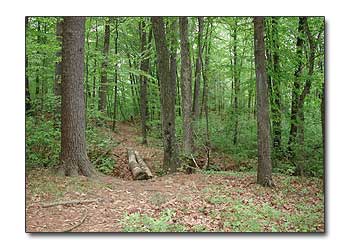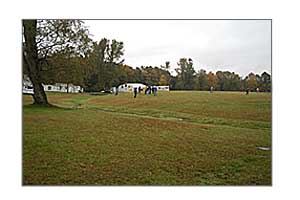Coinshooting and Relic Tips
These outdoor metal detecting tips will give you some ideas how to hunt for coins by detecting, and locations that will help you be a success at relic hunting.
What exactly is relic hunting? It is an attempt to locate old, vintage, or antique metal items in the ground. hunting outdoors on land such as in the woods, forests, fields and on riverbanks.
Relic hunters
 This group of people look mainly for old relics. If they find even an axehead from the colonial days they're happy. They love finding old iron stuff, and the older the better. They look for Colonial items mostly, and aren't really interested in anything recently lost. They spend a lot of time doing research, and then they go hunting.
This group of people look mainly for old relics. If they find even an axehead from the colonial days they're happy. They love finding old iron stuff, and the older the better. They look for Colonial items mostly, and aren't really interested in anything recently lost. They spend a lot of time doing research, and then they go hunting.
Coinshooters
Coinshooters are people who look specifically for old coins, the older the better. They love the Colonial coins, and they spend a lot of time doing research too. They locate old inns, taverns old stagecoach runs, old wooden bridges, and creeks.
Detecting the woods
Start your relic hunting in your local woods. Now that it's Spring surely you have noticed areas that would seem promising. You might be spotting old stone walls or foundations as you drive by them. Make a note of these spots so you don't forget. When you get a chance to go back to these old foundations, look for deep impressions in the ground that may have been dug for a bottle dump or cellar hole.
If you find a path in the woods, your best bet would be to check it, because most paths are not new, and have been walked on for centuries. Most paths were eventually made into roads . Searching near the road may be a good idea, because people walked along the road years ago. Keep a lookout for overgrown paths, and old wagon roads. These usually have stones imbedded in them so that the wagons wouldn't sink in the mud.
Riverbank hunting
We seem to have the best luck at this type of detecting. Waterways were the first form of traveling, so be sure to check around old marinas, and especially old ferry launches. The old timers in your area may be of some help giving you locations of their old fishing spots. Old swimming holes are good, because when it's really hot people shed the clothes, and jump right in .
A man in New York asked us to find a gold cross and chain that fell out of his pocket as he was undressing near such a swimming hole in the 1930's.
If you see pieces of broken pottery or glassware you can almost bet it's a good spot. Remember the colonists had to wash their clothes in the rivers, and creeks. We have found losts of old buttons. Check around old bridges and train stops, you may be lucky and find an old token.
Field locations
 There are a lot of old farmfields around, the main thing with these, is getting permission. But usually, depending on the time of year, farmers are pretty lenient and don't mind. Fields are great right after a hard rainfall. You may even spot some Indian artifacts.
There are a lot of old farmfields around, the main thing with these, is getting permission. But usually, depending on the time of year, farmers are pretty lenient and don't mind. Fields are great right after a hard rainfall. You may even spot some Indian artifacts.
Do some studying on the locations of old cotton or tobacco fields. If you hit upon a coin, check that area real good, because you may have stumbled across a hidden treasure cache, and it has been known to happen. Most fields were used as encampments during certain wars. So be sure you aren't breaking any laws by detecting known battlefields.
Getting permission
How easy is it for you to walk up and knock on a door, and ask permission to hunt? Some people find it easy to do, some don't. Written permission from private landowners is best way to go. Usually, you will have to come to an agreement with the landowner concerning what you find, before you start to hunt. Most seem to be happy if you just share a couple of old coins with them. Some people even offer the farmer a detector to use to hunt with them. In some states it's harder to get permission because people can be very protective of what they own.
Researching New Spots
We've been told that everything you need to research old spots is online somewhere. Topo maps are available and the historical societies abound with great information and pictures. Compare the old maps with new maps and see what has changed. The problem we have found is that most land has been already been overdeveloped in most areas. Find an area that has never been developed and you are good to go.
Thanks for stopping by and reading our Relic Hunting Tips.